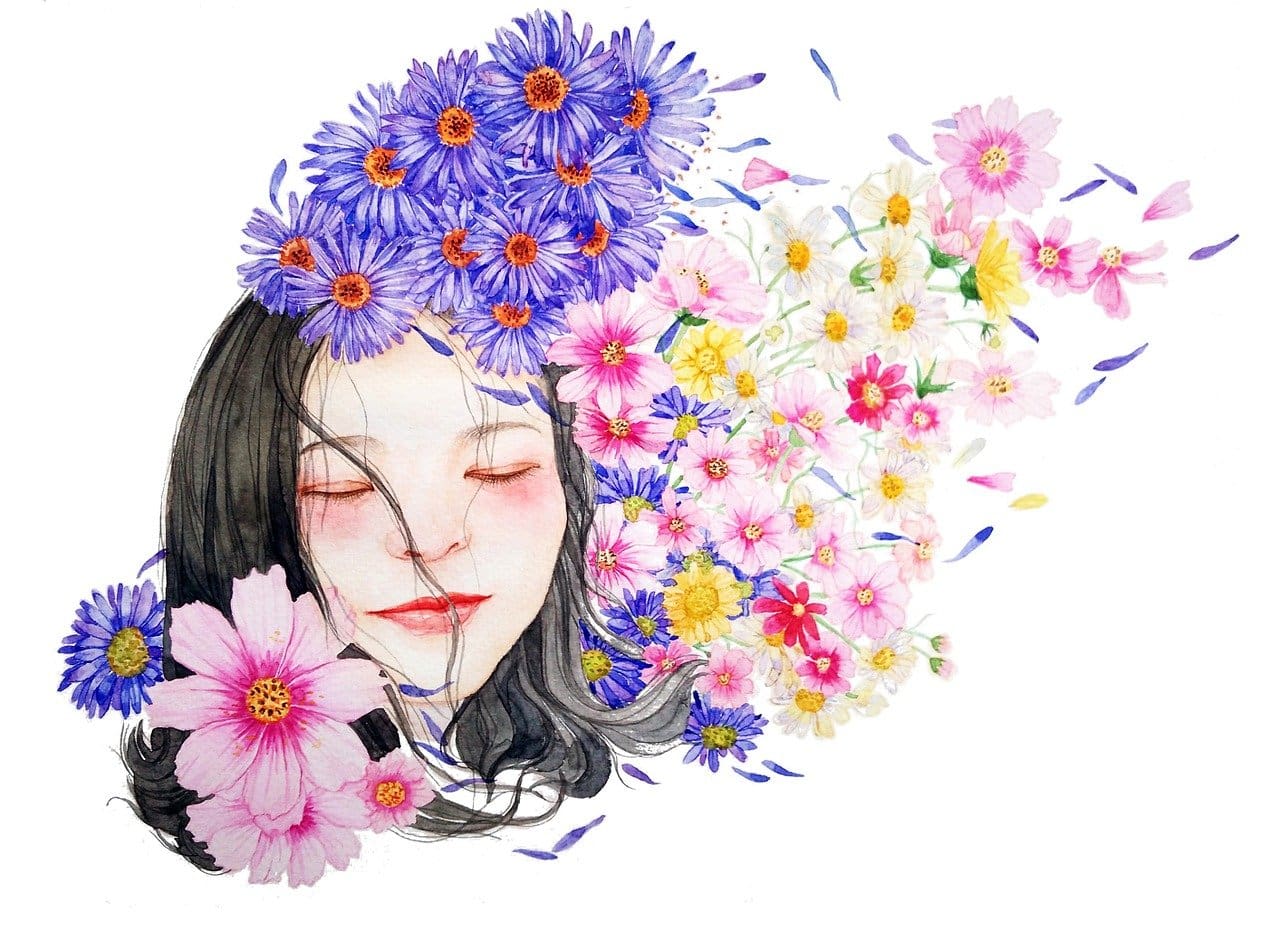What is dream interpretation? Simply put, it is the process of understanding the meaning of your dreams. Dreams often offer a window into our subconscious thoughts, acting as a reflection of our deepest desires, fears, and experiences. However, unraveling these meanings can sometimes feel as complex as painting an abstract masterpiece.

Understanding the Meaning Behind Your Dreams
Dreams can often appear random and nonsensical upon waking. Nonetheless, many psychologists suggest that dreams serve to increase our understanding of ourselves, offering vital clues about our mental, emotional, and even physical health. Therefore, interpreting the meanings of your dreams isn’t just an interesting pastime – it’s an insightful journey into self-discovery.
Exploring Common Dream Symbols
Dreams are often rife with recurring themes and symbols, such as being chased or having your teeth fall out. Assigning meaning to these symbols is a key part of dream interpretation. It is important to remember that dream symbols are highly subjective. The symbol of water, for example, could represent emotions in one dreamer’s subconscious mind, while symbolizing a longing for freedom in another’s.
Using a Dream Dictionary to Interpret Your Dreams
To help you interpret the meanings of these symbols, consider using an online dream dictionary. These free online resources act as a guide to dream interpretation, offering suggested meanings for various dream scenarios. For example, if you dream about a person from your past, the dictionary might suggest that this individual represents a certain aspect of your personality that you need to address. However, the ultimate interpretation always depends on the dreamer’s unique circumstances and feelings.
Interpreting Dreams From a Psychological Perspective
Dream interpretation has a rich history in the realm of psychology, particularly with psychoanalysts like Sigmund Freud and Carl Jung.
Unveiling the Unconscious: Freud and Jung’s Views on Dream Interpretation
Freud, the father of psychoanalysis, viewed dreams as the “royal road” to the unconscious. He believed that through dreams, our repressed desires surface in disguised forms. Carl Jung, a protege of Freud, had a different perspective. Jung believed that dreams might not only expose our hidden desires but also guide us towards personal growth and self-realization.
Both Freud and Jung’s theories of dream interpretation underline the importance of understanding our dreams. They highlight that dreams can also serve as an outlet to process difficult emotions, reflecting our waking life challenges and preoccupations.

7 Common Dreams
Dreams come in many forms, but some themes occur frequently across cultures and individuals. The following are seven common dream types:
- Being chased
- Taking a test
- Dreaming of infidelity
- Dreams about teeth falling out
- Flying dreams
- Falling dreams
- Dreams about death
Meaning Behind 7 Types of Common Dreams
These common dreams can evoke strong emotions, and their meanings can vary greatly. For instance, a dream of being chased might symbolize feelings of anxiety in your waking life. On the other hand, a positive dream like flying could represent liberation and freedom.
An interesting fact is that Islamic dream interpretation, as theorized by Ibn Sirin, one of the most famous Islamic dream interpreters, also acknowledges these common dream themes. It ascribes specific meanings to these recurring symbols, showing that the practice of dream interpretation spans across different cultures and traditions.
How to Interpret Common Dreams
Interpreting Dreams About Specific Individuals
Dreaming about specific individuals can also be revealing. These dreams might represent certain aspects of your own personality, or they could symbolize the relationship you have with the person in your dream. Again, the context and your personal feelings play a crucial role in the interpretation.
Decoding Dreams About Being Chased
Being chased in a dream could signify a fear or issue you’re running from in your waking life. It may be a manifestation of your subconscious mind telling you to confront the issue head-on.
Unraveling the Meaning of Taking a Test in Your Dream
Dreams about taking tests often relate to self-esteem and anxiety. If you dream of failing a test, for instance, it may indicate that you’re experiencing stress or fear of failure.
Unlocking the Secrets of Infidelity in Dream Scenarios
Dreaming about infidelity doesn’t necessarily mean your partner cheated or that you desire someone else. Instead, it may be trying to highlight issues of self-worth or unmet needs.
Remember, each dream’s interpretation can be as unique as the dreamer. Therefore, what a dream symbol represents can vary greatly from one person to another.
Where to Find Help with Dream Interpretation

Understanding the Benefits of Dream Analysis with a Psychologist
Psychologists, especially those trained in psychoanalysis, can help you delve deeper into your dreams and what they might be communicating about your subconscious thoughts and feelings.
If you’re struggling to decipher your dreams, don’t worry. There are many resources available to help you interpret their meanings. From professional dream interpreters and psychologists to discussion forums and free online dream dictionaries, there are countless avenues to explore.
Utilizing a word dream dictionary or an online guide is a quick and accessible way to start. For a more in-depth analysis, you might consider consulting with a dream analyst or a psychotherapist.
Consulting a Dream Interpreter for Professional Analysis
Dream interpreters specialize in decoding the symbols and narratives of dreams. They can provide a more personalized and in-depth understanding of your dream experiences. Professionals like Lauri Loewenberg – Professional Dream Analyst, a certified dream analyst, offer personalized insights based on their comprehensive understanding of dream symbols and archetypes.
Conclusion
Dreams serve as more than just fascinating stories we experience when we sleep. They provide important information about our subconscious thoughts and feelings, and can even provide valuable insights into personal growth. Understanding the hidden meanings in your dreams is like unlocking a door to deeper self-understanding. So, the next time you wake up from a vivid dream, don’t dismiss it – explore it.
Remember, “Dreams are the royal road to the unconscious,” as Sigmund Freud once said. By exploring your dreams, you can embark on a journey of self-discovery and personal growth.
FAQs
Q: What are the warning signs in dreams?
A: Warning signs in dreams can vary greatly depending on the individual and the specific circumstances. However, some common warning signs might include recurring nightmares, dreams of death or harm coming to oneself or loved ones, or dreams featuring distressing or fearful situations. It’s important to remember that these dreams are often symbolic, reflecting underlying fears or anxieties rather than predicting future events.
Q: What dreams are signs of pregnancy?
A: While dreams cannot provide a definitive sign of pregnancy, some people report having vivid or unusual dreams when they are pregnant. Dreams about fertility symbols such as blossoming flowers or flowing water, or dreams about babies and small animals, might be interpreted as signs of pregnancy. However, if you think you might be pregnant, a pregnancy test or a visit to a healthcare professional will provide a much more accurate answer.
Q: What does it mean if you dream you’re pregnant?
A: Dreaming about being pregnant might symbolize a variety of things depending on your personal circumstances. It could reflect a desire for parenthood, or it could symbolize a new project or idea that you are “nurturing” in your waking life. Alternatively, it might represent personal growth and development.
Q: Why do I do bad things in my dreams?
A: Dreams are a safe space where we can explore all sorts of scenarios, even those that we would never act out in real life. If you find yourself doing bad things in your dreams, it might reflect feelings of guilt or regret, fears of losing control, or anxieties about moral or ethical dilemmas.
Q: What is the most common negative dream in the world?
A: According to various studies, one of the most common negative dreams people experience is the dream of being chased. This dream might symbolize feelings of stress, fear, or anxiety in the dreamer’s waking life.




















